Science News: Recent scientific discoveries and expert analysis
Read the latest science news and recent scientific discoveries on Live Science, where we've been reporting on groundbreaking advances for over 20 years. Our expert editors, writers and contributors are ready to guide you through today's most important breakthroughs in science with expert analysis, in-depth explainers and interesting articles, covering everything from space, technology, health, animals, planet Earth, and much more.

Explainers | Everything you need to know about the science news that matters.

Science Spotlight | Shining a light on new science transforming our world.
Latest news
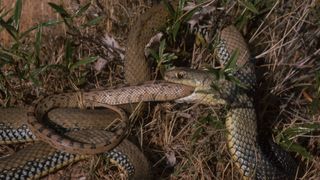
Snakes keep evolving into cannibals — here's what scientists think is going on
By Olivia Ferrari published
A review of over 500 reports of cannibalistic behavior in snakes finds it's appeared multiple times in different evolutionary lineages, leading researchers to hypothesize it's beneficial for snakes under certain circumstances.
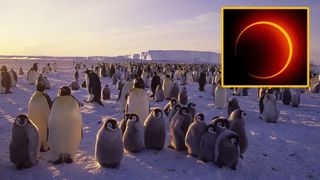
Lucky few to see 'ring of fire' solar eclipse over Antarctica on Feb. 17
By Jamie Carter published
This month's new moon brings an annular (or "ring of fire") solar eclipse, but it will only be visible from parts of Antarctica.
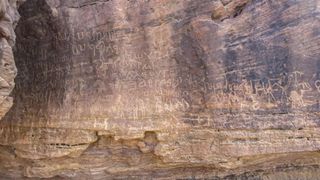
Ancient rock art depicting hunters and geometric shapes discovered in Egypt's Sinai Desert — and it spans a period of 10,000 years
By Owen Jarus published
A rock shelter with rock art and inscriptions spanning millennia has been discovered in Egypt.
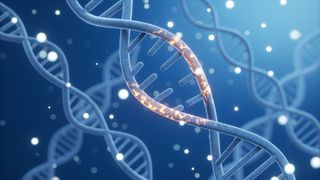
In a first, study links maternal genes to risk of pregnancy loss
By Zoe Cunniffe published
For the first time, scientists have identified genetic variants that increase the risk of aneuploidy, in which cells have an abnormal number of chromosomes. Aneuploidy in egg cells can lead to miscarriage.
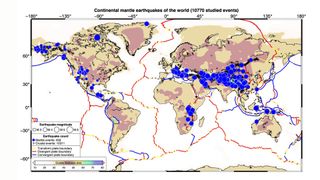
'Impossible' mantle earthquakes actually occur all over the world, study finds
By Stephanie Pappas published
Researchers were once unsure whether mantle earthquakes existed. Now they have a global map of this mysterious phenomenon.
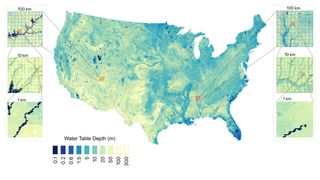
There's 13 Great Lakes' worth of water hidden beneath the contiguous US, new map reveals
By Emily Gardner, Eos.org published
Researchers used 1 million data points and a machine learning algorithm to estimate groundwater stores with higher resolution than ever before.
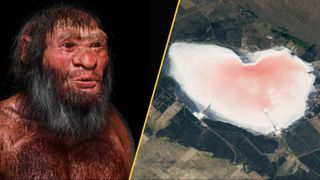
China turns desert into carbon sink, a viking giant in a mass grave, real-life inception, and a Valentine's gift idea from nature
By Ben Turner published
Science news this week Feb. 14 2026: Our weekly roundup of the latest science in the news, as well as a few fascinating articles to keep you entertained over the weekend.

MIT designs computing component that uses waste heat 'as a form of information'
By Owen Hughes published
Proof of concept uses passive components to redirect heat across a chip, allowing temperature patterns to be used for data processing.
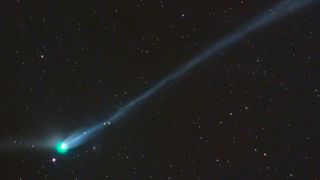
Newly visible, city-size 'green comet' will soon be ejected into interstellar space — just like 3I/ATLAS
By Harry Baker published
Comet Wierzchoś, also known as C/2024 E1, is rapidly brightening as it approaches its closest point to Earth next week. But experts predict it will eventually be thrown out of the solar system forever, just like the "alien" comet 3I/ATLAS.

'It's telling us there's something big going on': Unprecedented spike in atmospheric methane during the COVID-19 pandemic has a troubling explanation
By Victoria Atkinson published
During the COVID-19 pandemic, the atmosphere temporarily lost its ability to break down methane, leading to a huge spike in the greenhouse gas.

Record-breaking gravitational wave puts Einstein's relativity to its toughest test yet — and proves him right again
By Sharmila Kuthunur published
A record-breaking gravitational wave signal let scientists "listen" to a distant black hole merger and put Einstein's gravity to its toughest test yet.
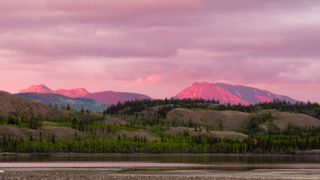
Canada could remove 5 times its annual carbon emissions by planting trees on edge of boreal forest, study finds
By Brian Owens published
Planting trees on 6.4 million hectares of northern taiga forest could remove 3.9 gigatons of CO2 by 2100 — five times Canada's annual emissions.
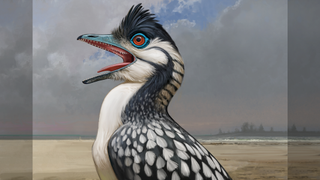
Archaeopteryx, one of the world's first proto birds, has a set of weird, never-before-seen features, new study reveals
By Aristos Georgiou published
Iconic transition species between dinosaurs and birds may have had weird 'teeth' on roof of its mouth and a highly mobile tongue, study reveals
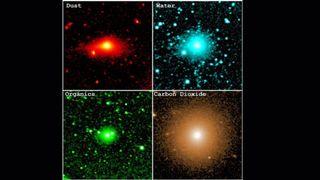
NASA telescope spots the building blocks for life spewing out of comet 3I/ATLAS
By Patrick Pester published
NASA's SPHEREx space telescope detected organic molecules coming off comet 3I/ATLAS as the interstellar visitor made its closest approach to Earth in December.
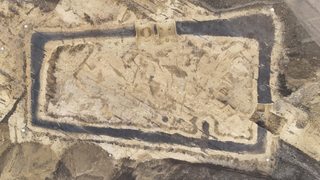
Subterranean tunnel, possibly used for medieval cult rituals, discovered in Stone Age tomb in Germany
By Kristina Killgrove published
A tunnel system discovered in a Stone Age tomb in Germany suggests medieval people created hiding places for their cultic rituals.

China banned all fishing to save the Yangtze River. This 'nuclear' option appears to be working.
By Chris Simms published
Decades of overfishing and habitat degradation led to huge declines in freshwater biodiversity in China's longest river, but there are signs of recovery after a fishing ban was implemented in 2021.
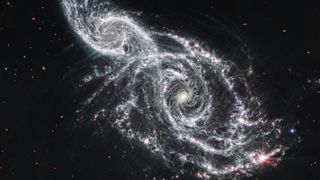
The earliest black holes in the universe may still be with us, surprising study claims
By Paul Sutter published
The earliest black holes in the universe may not have disappeared from Hawking radiation after all, new research hints. Instead, they fed on the energy of the ancient cosmos to grow supermassive.
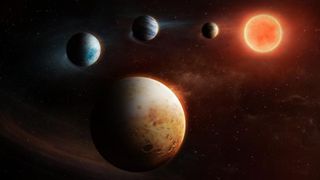
Strange rocky world found lurking on the edge of 'inside out' planetary system
By Skyler Ware published
Astronomers have spotted an unusual 'inside-out' planetary system where a rocky world seems to have formed far beyond the realm typically reserved for gas giants.

Risk of death from pregnancy in the US is 44 times higher than that from abortion, new analysis reveals
By Marianne Guenot published
A figure commonly used to compare the risk of death from pregnancy compared with the risk of death from abortion might be based on outdated data, a new study suggests.
Get the world’s most fascinating discoveries delivered straight to your inbox.
 Live Science Plus
Live Science Plus












